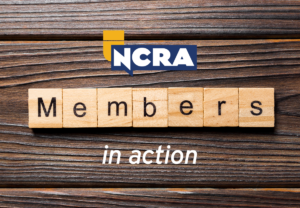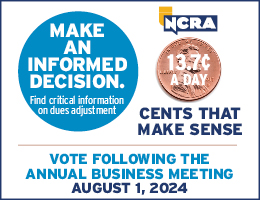By Alan Peacock

As many seasoned reporters and captioners know, any realtime assignment can be a nightmare, filled with ghosts and goblins, or it can be a treat, filled with all of the joy and pride of a top-notch steno superstar. Whether your realtime experience is a “trick” or a “treat” depends on you.
If you want to make sure that your experience is a treat, there are a few things you need to know. The first and most obvious task is to use your time in advance to your advantage. Be sure to thoroughly prep each assignment.
Contact the assigning agency or law firm and ask for previous depositions in the case, as well as indexes from other reporters. You can scan them for quick dictionary building. If there are no depositions available, then ask for the complaint filed in the case. If nothing is still available, use your savvy online research skills to find similar cases and vocabulary. Always be at least prepared with the witness’s name, counsels’ names, their law firm’s names, subject matter specific vocabulary and anything else you can think of. The more armed you are in advance, the better your realtime will look.
Take the time to really think through the subject matter. If there are several multisyllabic high-frequency words, then do your best to find one-stroke briefs for your job dictionary. There’s no need for two- and three-stroke briefs if you have the time to prep. Your chances of mis-stroking a brief are cut by 50 percent by decreasing the number of strokes for each word. So do your best to keep prep as simple as possible. If your software allows you to generate a report of the most frequently used words, use that to your advantage. Create single strokes for those high-frequency words, even if they are not difficult to write.
Another tip you can use is to make a checklist for each assignment that you must check off the night before your job. That way you can always be sure that you have your tablets charged to 100 percent, that all of the necessary cables and chargers are in your bag, and that you have everything you need. There’s no worse feeling in the world than arriving to an assignment and realizing that the one thing you left at home will prevent you from working or from providing the best realtime. So even though it sounds simple and redundant, checking your equipment needs off of a list can actually save you a lot of time and trouble and keep the goblins away!
Alan Peacock, FAPR, RDR, CRR, CRC, is a freelance court reporter and CART captioner based in Mobile, Ala. He hold NCRA’s Realtime Systems Administrator certificate. He is a member of NCRA’s Technology Committee.



